Switzerland
Regulation
Veterinary medicine falls under The Federal Office of Public Health (FOPH), which is part of the Federal Department of Home Affairs. Within the Federal Office of Public Health, the Commission of University Medical Professions, based in Berne, is responsible for university education and continuing education. Veterinary medicine is regulated by a Federal Act on University Medical Professions (Medical Professions Act, 23rd June 2006).
Veterinary Specialist Recognition
There is a federal register for all medical professionals with post graduate qualifications. It lists individuals with Swiss or Switzerland-recognised diplomas and continuing professional development titles in medicine, veterinary medicine, pharmacy and dentistry. However, no international (e.g. European Veterinary Specialists, AVMA American Board of Veterinary Specialties diplomats, Fellows of the Australian and New Zealand College of Veterinary Scientists) or national specialist qualifications in veterinary medicine are recognised officially in Switzerland.
Professional membership organisations like the Swiss Veterinary Society (GST/SVS) can however register the titles that they award. There are nine national specialist titles (FVH) for horses, companion animals, ruminants, swine, pathology, laboratory medicine, food hygiene, veterinary microbiological analytics and veterinary public health at EQF level 7+, based in part on continuing education.
Advanced Veterinary Practitioners
There is no Advanced Veteirnary Practitioner Training. Some veterinarians in Sqitzerland have completed postgraduate studies leading to a Dr. med. vet. title. Dr. med. vet. is not equivalent to a PhD.
Continuing education of veterinary general practitioners
Continuing education has been mandatory, under the Federal Law on the Medical Profession, for all practicing veterinarians since 2002. This is recorded by the Swiss Veterinary Society (GST/SVS) using continuing education points. The awarded continuing education points are prerequisite to gaining the national specialist qualifications (FVH).
Veterinary education
There is one Veterinary Faculty in Switzerland, called the Vetsuisse-Faculty. It has two locations: Vetsuisse-Faculty University Zurich and Vetsuisse-Faculty University Berne. Veterinarians graduate and are federally licensed (med. vet.) and can get the permission to work as a veterinarian in private practice.
Membership Organisations
The membership organisation is the Gesellschaft Schweizer Tierärztinnen und Tierärzte/Société des Vétérinaires Suisses (GST/SVS). One of the aims of the GST/SVS is to ensure the quality of veterinary practice in education in general and in continuing education in particular. The Swiss Veterinary Society (GST/SVS), the official representing body of veterinarians in Switzerland, has a number of subsections including one for specialized veterinarians – Fachsektionen.
Country Representative

Stats
317 European Veterinary Specialists
390 Total Diplomates
23 EBVS Colleges
2100 Veterinarians
1 Veterinary schools
1 EAEVE-approved veterinary schoolsView all EBVS Specialists in Switzerland
Represented Colleges:























SAVIR – Swiss Association of Veterinarians in Industry and Research
SAVIR provides support with its network of veterinarians working in the fields of business, industry, research and education. SAVIR was founded as an association in 2002.
As experts in the field of laboratory animal science, we are committed to the ethical performance of animal experiments in which the distress to the animals is kept as low as possible while maintaining the same high level of knowledge gain. At the same time, we support open and transparent communication about animal experiments.
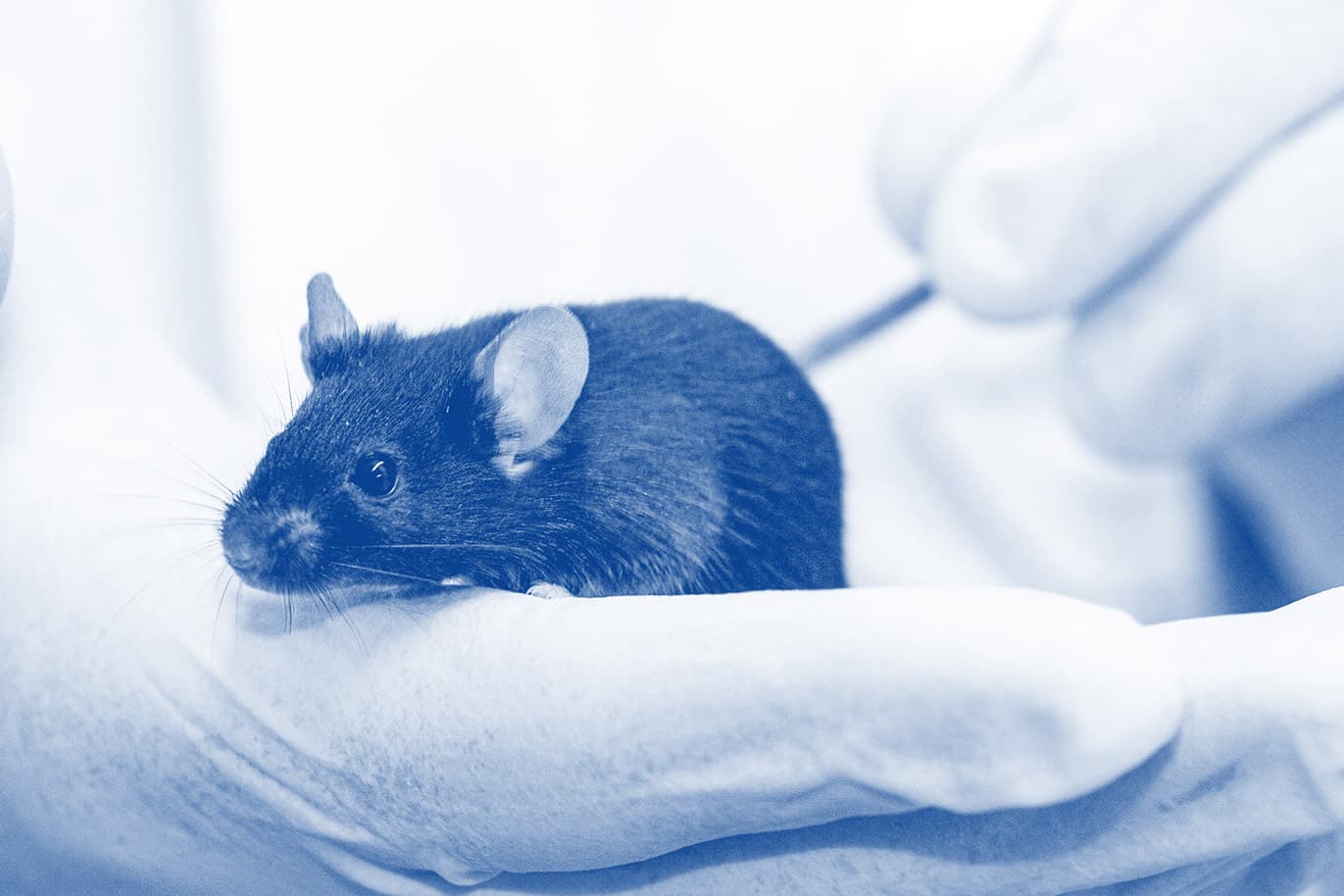
NEWS
Position Paper „Ein Nein ohne Gegenvorschlag zur «Menschen- und Tierversuchsverbotsinitiative» ist für den gesamten Forschungsstandort Schweiz essenziell“
11 swiss organisations, including SAVIR, have sent the following position paper to the Nationalrat (available only in German):
Positionspapier / Position paper
Wieso es fragwürdig ist, Primaten Grundrechte zu geben
Die Veterinärmedizinerin Dr. Maike Heimann hinterfragt in ihrem Gastbeitrag in Nau.ch die Argumente von «Sentience Politics» und schreibt über mögliche Konsequenzen.
Artikel lesen / Read the article
CABMM 2020
This November/December SAVIR was invited to give an online lecture miniseries at the CABMM Scientific meeting (Competence Center for Applied Biotechnology and Molecular Medicine; www.cabmm.uzh.ch/en.html). One of our presentations dealt with the topic of communication on animal experimentation. Due to technical problems during the zoom meeting, not all participants were able to follow the presentation. Therefore, it was made available online again here.
FELASA-ESLAV-ECLAM Position Paper on CO2 use for euthanasia of rodents
Based on the discussions in Switzerland about the use of CO2 for the euthanasia of rodents, FELASA-ESLAV-ECLAM have set up a position paper, see here.
Animal experiments in the corona-virus research / Tierversuche in der Corona-Forschung
Article in the Berliner Zeitung from 2nd December 2020 (only in German)
Gastbeitrag in der Berliner Zeitung vom 02.12.2020 (in Deutsch).
Read the article / Artikel lesen
SAVIR is on Twitter
Follow us under SAVIR_2019
Communication on Veterinary Expert Title Dipl. SVLAS
Laboratory Animals, the international journal of Laboratory animal science, Medicine, Technology and welfare accepted a short communication about the expert title Dipl. SVLAS in the latest volume (Newly created title of the Diplomate Specialized Veterinarian in Laboratory Animal Science (Dipl. SVLAS) awarded by the Swiss Association of Veterinarians in Industry and Research (SAVIR), Heimann M., Laboratory Animals 2018, Vol. 52(6) 653–654)
Vet professional card (Tierärzteausweis)
The Federal Food Safety and Veterinary Office (BLV) does not issue such ID cards! In Switzerland, the BAG, 3003 Berne, is responsible for issuing diplomas and identity cards for medical persons. Likewise, the BAG is responsible for the assessment resp. the recognition of foreign degrees in the field of medical professions.
More information can be found here:
General information recognition of foreign degrees (EU/EFTA)
Vet identity card
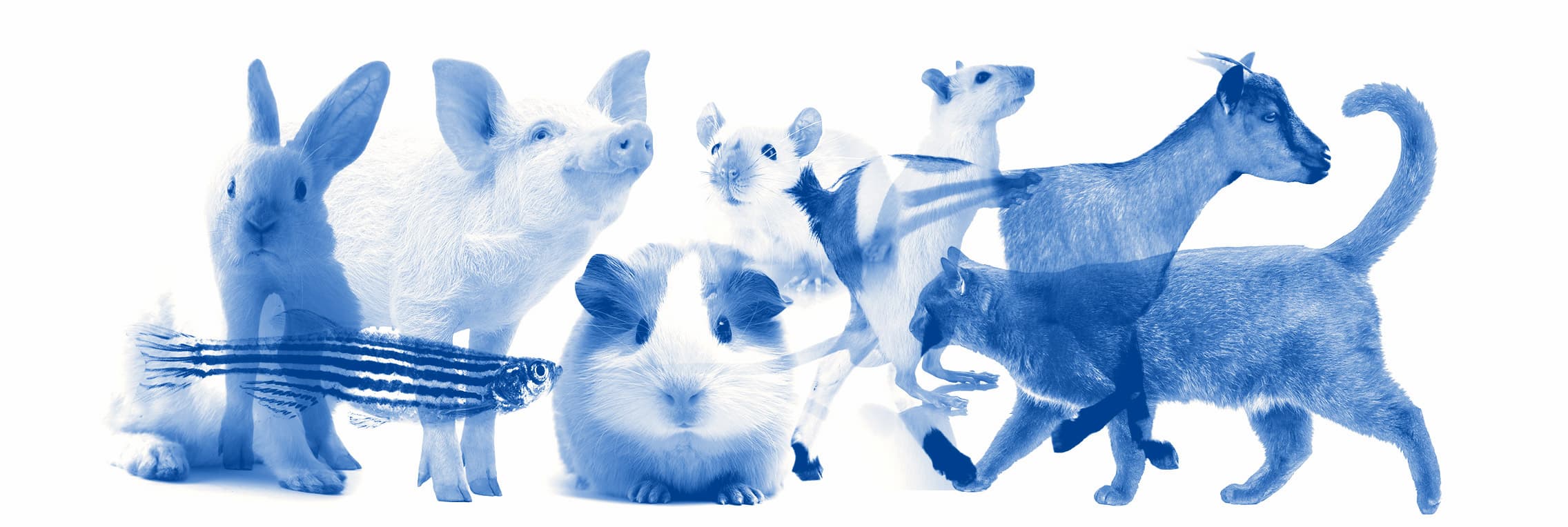
BOARD
Maike Heimann
President
Dr.med.vet.
Fachtierärztin Labortierkunde
Dipl.SVLAS
Christina Simon
Vice-president
Dr.med.vet.
Fachtierärztin Labortierkunde (D)
Claudia Weigt
Actuary
Dr.med.vet.
Fachtierärztin Labortierkunde
Dipl.SVLAS
Kerstin Broich
Treasurer
Dr.med.vet.
Master Business
Administration
Gisèle Ferrand
Dr.med.vet.
Fachtierärztin Labortierkunde
Dipl.SVLAS
WHY BE A MEMBER?
Benefit from the network, specific further education and representation of interests of the profession in national and international committees. SAVIR provides veterinarians and students with the necessary professional contacts and coaching for their professional orientation or career and career planning. SAVIR also awards the Swiss title of Diplomate Specialized Veterinarian in Laboratory Animal Science / Dipl. SVLAS as postgraduate education of veterinarians in the field of laboratory animal science.
Do you feel addressed and would you like to support SAVIR? Become a member! The membership fee is CHF 80.- per year (40.- for students).
The statutes of SAVIR (in German) can be found here:Statutes
If you have any questions or are interested in becoming a member, please use the contact form or the membership application form. Your request will be answered as soon as possible.ContactMembership
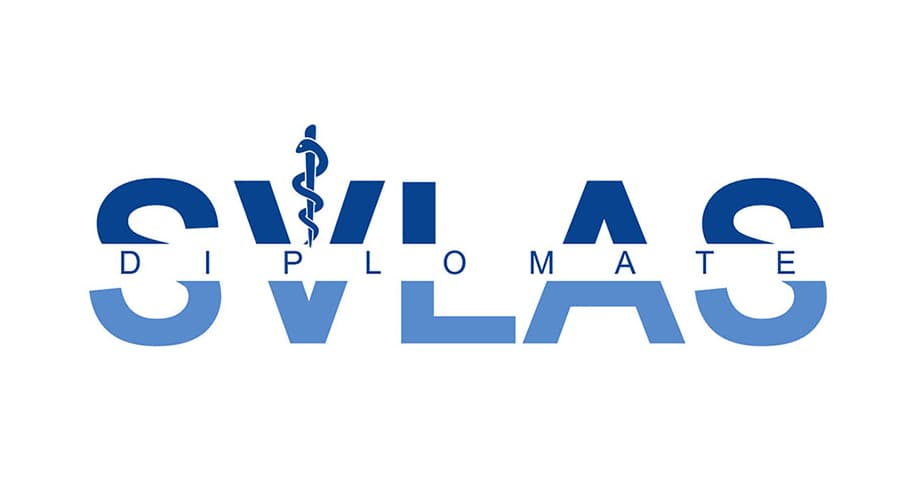
Diplomate Specialised Veterinarian in Laboratory Animal Science (Dipl.SVLAS)
SAVIR awards the Swiss title of Diplomate Specialized Veterinarian in Laboratory Animal Science / Dipl. SVLAS. The postgraduate education of veterinarians in the field of laboratory animal science to graduated specialist veterinarians represents a recognition of professional competences according to the corresponding catalogue of competences.
For further information please klick here: www.svlas.ch
EDUCATION
We recommend the following links if you need training and further education.

Institute of Laboratory Animal Science in cooperation with the ETH Zürich

Resal – lemanic animal facility network
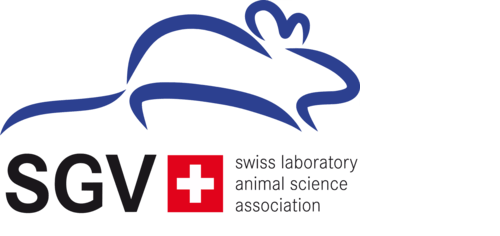
SGV – Swiss Laboratory Animal Science Association
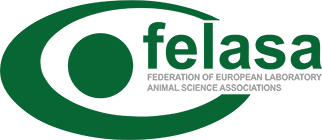
FELASA- Federation of European Laboratory Animal Science Associations
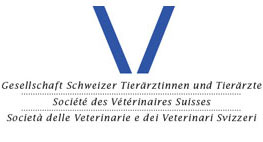
GST – Gesellschaft Schweizer Tierärztinnen und Tierärzte

Fondazione Guido Bernardini
TIERVERSUCHE – ANIMAL EXPERIMENTS
Deutsch:
Nach wie vor sind Versuche mit Tieren unerlässlich – sei es für die Entwicklung neuer Medikamente (z.B. gegen derzeit unheilbare Erkrankungen wie HIV oder bestimmte Krebstypen), für die Entwicklung neuer Impfstoffe (z.B. gegen COVID-19) oder für die Entwicklung neuer Medizinalprodukte (z.B. Kniegelenksersatz). Zudem kommen Tiere in der Ausbildung (z.B. von Studierenden der Veterinärmedizin) oder in der Erforschung von Wildtieren (z.B. Untersuchung von Wildtierpopulationen in Bezug auf deren Vorkommen und Gesundheitsstatus) zum Einsatz. Die Belastung der Tiere hat dabei so gering wie möglich zu sein, der Umgang mit ihnen muss so schonend wie möglich erfolgen. Jeder in unserer Gesellschaft profitiert in irgendeiner Weise von den Erkenntnissen, die mittels Tierversuchen gewonnen werden. Gleichzeitig fehlt es noch vielfach an offener und transparenter Kommunikation über diesen Bereich, wodurch es zu falschen Erwartungen oder Mistrauen gegenüber diesem Wissenschaftszweig kommt.
SAVIR hat zusammen mit der SGV (Schweizerische Gesellschaft für Versuchstierkunde) einen Flyer entwickelt für die Information der Öffentlichkeit über tierexperimentelle Forschung in der Schweiz. Damit möchten wir beitragen zu besserer Kommunikation und Transparenz in unserem Fachgebiet.
Darübehinaus gibt es bereits verschiedene Websites und Plattformen, die genau und sachlich darüber informieren, wozu und unter welchen Bedingungen Tierversuche durchgeführt werden.
Einige interessante Seiten finden Sie unter den folgenden Links:
English:
Animal experiments are still indispensable – for instance for the development of new drugs (e.g. against currently incurable diseases such as HIV or certain types of cancer), for the development of new vaccines (e.g. against COVID-19) or for the development of new medical products (e.g. knee joint replacement). In addition, animals are used in education (e.g. by students of veterinary medicine) or in research on wild animals (e.g. investigation of wild animal populations with regard to their occurrence and health status). The stress to the animals must be kept as low as possible, and the handling of the animals must be as gentle as possible. Everyone in our society benefits in one way or another from the knowledge gained through animal experiments. At the same time, open and transparent communication about this area is still often lacking, which leads to false expectations or mistrust of this field of science.
SAVIR together with the SGV (Swiss Laboratory Animal Science Association) have created a Flyer for information of the public about animal experiments and research in Switzerland. With this we want to support communication and transparency about our field of work.
Flyer Animal Research Switzerland
Below you will find another link about „Good Practice in Communicating Animal Research at Universities“ from LERU (League of European Research Universities). In this document, LERU describes several actions which could improve transparency and communications on animal use in universities.
Good Practice in Communicating Animal Research
Furthermore, there are already various websites and platforms that provide precise and factual information about what animal experiments are performed for and under what conditions:
Some interesting websites can be found using the following links (partly available in English):
JOBS
You would like to publish a job offer? Click here to email us.
Stellvertretender Standort-Manager/-in Labortierhaltung Schlieren (80-100%)
Laboratory Animal Services Center (LASC), Universität ZürichPDf Download
LINKS
Schweizerische Gesellschaft für Versuchstierkunde / Swiss Laboratory Animal Science Association
3R Kompetenzzentrum Schweiz / Swiss 3R Competence Centre
Gesellschaft Schweizer Tierärztinnen und Tierärzte
Bundesamt für Veterinärwesen – Tierversuche
Gesellschaft für Versuchstierkunde GV-SOLAS (Deutschland)
Federation of European Laboratory Animal Science Associations
European Animal Research Association
European Society for Labortaory Animal Veterinarians
American Association for Laboratory Animal Science
American Society of Laboratory Animal Practitioners
National Center for Replacement Refinement & Reduction of Animals in Research (UK)
CONTACT
Send
© 2021 – SAVIR – Swiss Association of Veterinarians in Industry and Research | Datenschutz | Impressum SAVIR, Sitz in Stein (AG) contact@savir.ch | website by humusartwork.chhttps://www.google.com/recaptcha/api2/anchor?ar=1&k=6LccKd8ZAAAAABS0wlLoNTo104XtkOutCOrj2lwr&co=aHR0cHM6Ly9zYXZpci5jaDo0NDM.&hl=en&v=YhkYx1k-yvvb8OonJPmOpoJY&size=invisible&cb=xd26r275xe4o
Top 9 Highest-Paying Countries for Veterinarians
February 13, 2017VMD Staff
Thinking of relocating? Before you make a move, you might want to consider the 9 countries where veterinarians enjoy the highest salaries.
According to U.S. News & World Report, the median annual salary of veterinarians living in the United States was $88,490 in 2015. That got us thinking about veterinarian salaries in other countries throughout the world. Where do we rank? And are the wallets greener elsewhere?
Investment company Insider Monkey gathered data from a survey administered by the Federation of Veterinarians of Europe as well as information Payscale.com to determine the top 9 highest-paying countries for veterinarians.
If you’re thinking of relocating to another country and still plan to practice veterinary medicine, then you should probably consider your salary options before you make any moves. Take a closer look at the pay in each of these countries before you take the leap. And keep in mind that there may be salary differences within any single country.

9. Denmark
- The average salary is €47,000 ($51,216) per year for veterinarians.
- The University of Copenhagen ranks #17 on the QS World University Rankings list of the top 50 universities for veterinary science.

8. Luxembourg
- The average salary for veterinarians in Luxembourg is $53,040 per year.

7. Germany
- The average salary is €49,261 ($53,650) per year for veterinarians living in Germany.
- Ludwig-Maximilians-Universität München is #25 on the list of the top 50 universities for veterinary science.

6. Canada
- The average veterinarian salary for Canadians is $53,915 per year.
- The University of Guelph is #4 on the list of the top 50 universities for veterinary science.

5. Qatar
- Qatar is one of the world’s richest countries.
- The average salary there is $60,959 per year for veterinarians.

4. Iceland
- The average salary in Iceland is $65,935 per year for veterinarians.

3. Switzerland
- The average salary is $68,722 per year for veterinarians in Switzerland.
- The University of Zurich is #32 on the list of the top 50 universities for veterinary science.

2. Netherlands
- The average salary is $69,244 per year for veterinarians.
- Utrecht University ranks #5 on the list of the top 50 universities for veterinary science.

1. USA
- As noted above, the median annual salary of veterinarians living in the United States is $88,490. While this wage is higher than those in any other country, Hawaii takes the cake. The average veterinarian in Hawaii earns $95 per hour, or $198,600 per year.
- The University of California, Davis and Cornell University rank #1 and #2, respectively, on the list of the top 50 universities for veterinary science.
Related Content:Practice FinancesPractice FinancesLegal considerations when selling a veterinary practiceThis week on dvm360: A Q&A spotlighting veterinary technicians, plus more veterinary newsNews wrap up: This week’s veterinary headlines, plus new advancements in canine cancer testing
Legal considerations when selling a veterinary practice
October 18, 2021Caitlin McCafferty, Assistant Editor, Julia Burke, Assistant Editor
Charlotte Lacroix, DVM, JD, shared insight on ensuring success when leasing your veterinary practice real estate to a new buyer.
When you are the seller of a veterinary practice seeking to lease your real estate to a new buyer, veterinarian and lawyer Charlotte Lacroix, DVM, JD, recommends negotiating a few terms including the lease term and rent price. In a recent dvm360® interview, Lacroix offered up a few nuggets to help practice owners successfully streamline the selling process.
“Typically, you might have [the lease term] for 10 years with two 5 year renewals,” Lacroix informed dvm360® staff. “The rent of course is clearly, very important and you want it to be fair market value so that if you end up wanting to sell your real estate later, whoever is buying your real estate has a good source of rent on that.”
She then advised owners to be mindful of the escalation clause, and if the commercial lease is triple net, to determine who is responsible for expenses involving maintenance, repair, and replacement.
“And then finally, I think 1 of the last points that can be quite important is that you should have a guarantee or guarantor sign the lease in the sense as a guarantor,” suggested Lacroix. “So, that if the primary tenant defaults, you [have] somebody to go to collect your rent.”
Watch the full video below for more of Lacroix’s insight on legal considerations surrounding selling a veterinary clinic.https://imasdk.googleapis.com/js/core/bridge3.485.1_en.html#goog_536422889Play Video
Related Content:BusinessPractice FinancesPractice ManagerOwnersBuying or Selling a PracticeNews wrap up: This week’s veterinary headlines, plus new advancements in canine cancer testingWhen raising prices is detrimental3 must-reads on veterinary practice finances
This week on dvm360: A Q&A spotlighting veterinary technicians, plus more veterinary news
October 18, 2021dvm360 Staff
A sneak peek look at this week’s headlines.

It’s National Veterinary Technician Week! To celebrate all the hardworking technicians out there who provide the highest quality care to their beloved patients, we are bringing a robust mix of industry news and engaging content.
Here is a quick look at this week’s headlines:
- A Q&A highlighting what veterinary technicians enjoy most about the profession, their inspiration for pursuing this field, and beyond.
- According to the AVMA, there has been a record number of veterinary school applications this year.
- Charlotte Lacroix, DVM, JD, provides tips for success when leasing your veterinary practice real estate to a new buyer.
- A veterinarian outlines the latest treatments available for pyoderma, pruritus, and otitis.
- The new online toolkit from the Purina Institute offers veterinary professionals with nutritional resources to share with clients.
Stay tuned on dvm360.com for our most recent coverage of the veterinary industry.
Related Content:MedicalAssociatesTechniciansTechnologyBusinessPractice FinancesBuying or Selling a PracticeNutritionWhen raising prices is detrimental3 must-reads on veterinary practice financesCommunication pearls: Tips for answering those burning pet dental questions
News wrap up: This week’s veterinary headlines, plus new advancements in canine cancer testing
September 10, 2021dvm360 Staff
Check out this week’s highlights.

As the first full week of September comes to a close, we remain dedicated to providing you the latest veterinary news and hot topics.
Here’s a look at this week’s highlights:
- Do your clients struggle with giving their dogs oral medication? If so, here are 4 tips and tricks designed to help smooth the process for pet parents and eliminate the hassle.
- In a brand-new episode of The Vet Blast Podcast, Nick Nelson, DVM, MBA, president of BluePearl Speciality + Emergency Hospital, reveals the secret to fostering a successful business: Investing in the associates.
- Second-year veterinary student and dvm360® Student Ambassador, Simone O. Spence, shares the challenges of being Black in an (almost) all-white profession, plus how this can inspire an opportunity for change.
- Sue Ettinger, DVM, DACVIM (Oncology), also known as Dr Sue Cancer Vet, recently joined us for a video interview at the Fetch dvm360® Kansas City conference to break down the latest advancements in cancer testing for cancer.
Stay tuned on social media and dvm360.com for more veterinary news.
Related Content:BusinessMedicalPractice FinancesPractice Operations3 must-reads on veterinary practice financesCommunication pearls: Tips for answering those burning pet dental questionsSynchrony expands into equine market with CareCredit
When raising prices is detrimental
September 9, 2021Bash Halow, LVT, CVPMdvm360, dvm360 October 2021,
Eight reasons why increasing the price of same-day appointments, walk-ins, and urgent care cases, or for new clients, isn’t always the best solution.

Picture this: Your veterinary clinic is packed with appointments and you’ve just received 2 call-outs. It’s not even 8 am yet and you already have a client leaning their head against the front door asking if you’re open.
After an eventful morning dealing with difficult clients, the staff considers implementing a same-day surcharge. In theory, this operation has the potential to generate more revenue. However, the problem is that it’s not as seamless as imagined. Same-day surcharges may payout but usually don’t—or at least not in the way originally planned. Here are some observations to consider before raising prices on same-day appointments, walk-ins, new clients, or urgent care cases.
1. Raising prices on same-day care doesn’t slow things down.
Not unless you want your team members to say something like, “We can see Rye today but we’ll have to charge you extra because it’s a same-day appointment.” Even then, most clients will still come in, they’ll just come in angry. Why would you want a pricing policy that’s antithetical to everything you do?
2. It’s a horrible way to say welcome.
“You’re a new client? Welcome! You’re going to love it here…just as soon as you cough up an extra $20 to get in the door.” You probably won’t find that on Harvard Business Review’s ideas list for new client acquisition.
3. Enforcing urgent care pricing is mission-toxic.
You spend years trying to convince employees that you’re all about animal health, then withhold medical care until the client can pony up the extra dough for their sick pet. Nope, not buying the concept.
4. It only really works on people who are less well off.
Don’t they have enough trouble as it is? Where in your mission statement does it say that you provide the best care ever so long as the client’s credit is good? And what kind of a message are you telegraphing to team members with such a policy?
5. It doesn’t appease clients who must wait.
I already told you the fee doesn’t really work to slow things down. Your clients still have to wait. So now, with the same-day fee hike, you have a disgruntled same-day client and prescheduled client. Congratulations, you’re 2 for 2!
6. It doesn’t make overworked employees feel better.
No one at your practice is saying, “Make sure they get hit with the same-day surcharge. If I’m going to suffer, they’re going to suffer.” And if they are, what kind of thinking are you cultivating over there? Same day surcharges don’t work to support employee satisfaction.
7. It doesn’t pay for your team members’ extra time.
Squeezing another client onto the books just means that everyone works faster and harder. And for that, you pay the same as when they work slower and less efficiently.
8. We use the extra money to buy everyone lunch.
We all know that buying lunch for everybody goes miles to offset unhappiness, turnover, and burnout. It puts the twinkle back into everyone’s toes. After lunch, they line up to thank you for your generosity and thoughtfulness. Uh-huh, sure they do.
Take home points
Of course, I don’t mean to make light of the tough situation you are all in. I’m just trying to call same-day attention to a policy that I think needs some urgent redrafting. High demand for your services isn’t a bad thing, not if it’s managed well.
It’s important to note that we still have a ways to go regarding the pandemic recovery. Just because people may appear flushed with cash at the moment, doesn’t mean things are going to continue booming a year from now. Carve time into your schedule to have a thoughtful discussion with your whole team on how you can work together to help the clients and patients we love without overworking your staff. Remember, there are better answers than a same-day surcharge.
Bash Halow, CVPM, LVT, is a practice consultant and owner of Halow Consulting as well as a certified veterinary practice manager, a licensed veterinary technician, and (best of all for us) a regular Fetch dvm360® speaker.
Learn more about Bash Halow at bashhalow.com.Download Issue : dvm360 October 2021
Related Content:Practice ManagerOwnersBusinessPractice OperationsPractice FinancesCommunication pearls: Tips for answering those burning pet dental questionsSynchrony expands into equine market with CareCreditA look under the hood of a corporate practice purchase
3 must-reads on veterinary practice finances
August 26, 2021dvm360 Staff
These 3 detailed articles offer advice on all things practice finances—from selling to purchasing and beyond.

It’s no secret that one of the major components of running a successful veterinary practice is being skilled at handling finances. To help clinics better understand the nuances that come with practice finances, we’ve selected 3 articles that cover all the bases such as purchasing, selling, and tips and tricks for thriving in the industry.
From the ins and outs of corporate practice purchase to how to steer clear of making financial mistakes—there’s something for everyone. Happy reading!
- A look under the hood of a corporate practice purchase: Christopher J. Allen, DVM, JD, explains the nuts and bolts of corporate practice purchase including the decision to sell, logistical hurdles, closing and integration, and beyond.
- 7 common financial mistakes practice owners make: From not having an exit plan to not taking a vacation to not knowing your numbers, discover these common mistakes practice owners make and discover pointers on how to avoid them.
- Pros and cons of selling to a corporation: Shawn P. Messonnier, DVM, explains why selling was the biggest, most important decision he’s made, plus why you should sell to a corporate buyer and concerns to keep on your radar.
Related Content: